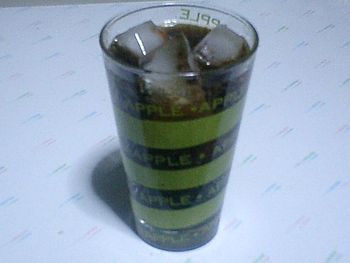 |
| Cola is usually colored dark brown using caramel color (Photo credit: Wikipedia) |
I don't think that we need to worry about being struck by an asteroid or aliens invading our planet or becoming zombie food. No, it is quite apparent that humans will be the end of humans. I don't mean by means of war, although that could be a possibility, no I literally mean we are going to kill ourselves.
In the news you can read about what's going to kill you today. Everyday (or so it seems) there is something new and different that we are warned to avoid. Most of them are things of our own making - processed, chemically created and/or enhanced items (usually food products) that will surely knock us dead. Today's product - caramel color. Yes, it's true, today you can potentially be killed by the color of your soda.
Personally, I am not a soda drinker. When I had issues with allergies and rashes years ago, high fructose corn syrup was among the things that I desperately try to avoid. Trust me, it's not easy because it seems as if it's in everything.... and I mean everything. I can make a damn loaf of bread or rolls without either sugar or high fructose corn syrup but evidently commercial bakers cannot. It makes you wonder if it's some plot to get us all addicted. But....I digress. 4-methyliminazole, or 4-Mel, which can be contained in caramel color - the stuff that gives your cola its brown color. Chances are you won't find 4-Mel listed on the ingredient label of your favorite soda because it's usually just referred to as "caramel coloring".
Consumer Reports stated that the amount of 4-Mel in various cola drinks can exceed acceptable levels (this is a whole other rant, trust me as a law student I took Food and Drug Law just before lunch --- a very, very bad idea, we skipped lunch a whole lot that semester). The WHO and State of California both believe that high levels of 4-Mel are dangerous so much so that they have issued warnings and California instituted a warning label on products containing the compound.
The Food and Drug Administration is currently looking into the issue. For those of you interested in learning more about 4-Mel and its possible dangers you can look here. I've included some of the highlights from that page below.
1. 4-methylimidazole (4-MEI) is a chemical compound that is not directly added to food; rather it is formed as a byproduct in some foods and beverages during the normal cooking process. For example, 4-MEI may form when coffee beans are roasted and when meats are roasted or grilled. 4-MEI also forms as a trace impurity during the manufacturing of certain types of caramel coloring (known as Class III and Class IV caramel coloring) that are used to color cola-type beverages and other foods.
2. Foods containing added colors must list them either by name or as “artificial colors” in the ingredients statement on the food label. Because there are other artificial colors, the presence of “artificial colors” on a food label does not necessarily mean that caramel coloring is contained in the food. Also, the presence of “caramel coloring” on a food label does not necessarily mean that the food contains 4-MEI, because the term “caramel coloring” also may be used to describe Class I and Class II caramel coloring. Class I and Class II caramel coloring do not contain 4-MEI.
3. Eliminating 4-MEI in food is virtually impossible. However, in the case of caramel coloring, companies can take steps to reduce its formation during the manufacturing process. In fact, several companies have already reduced the amount.
4. To ensure that the use of caramel coloring in food continues to be safe, FDA is currently reviewing all available data on the safety of 4-MEI and is reassessing potential consumer exposure to 4-MEI from the use of Class III and Class IV caramel coloring in food products. This safety analysis will help FDA determine what, if any, regulatory action needs to be taken. Such actions could include setting a limit on the amount of 4-MEI that can be present in caramel coloring. However, in the interim, FDA is not recommending that consumers change their diets because of concerns about 4-MEI.
So, that's what may kill you today. Perhaps we might want to think before we grab that can of soda.





